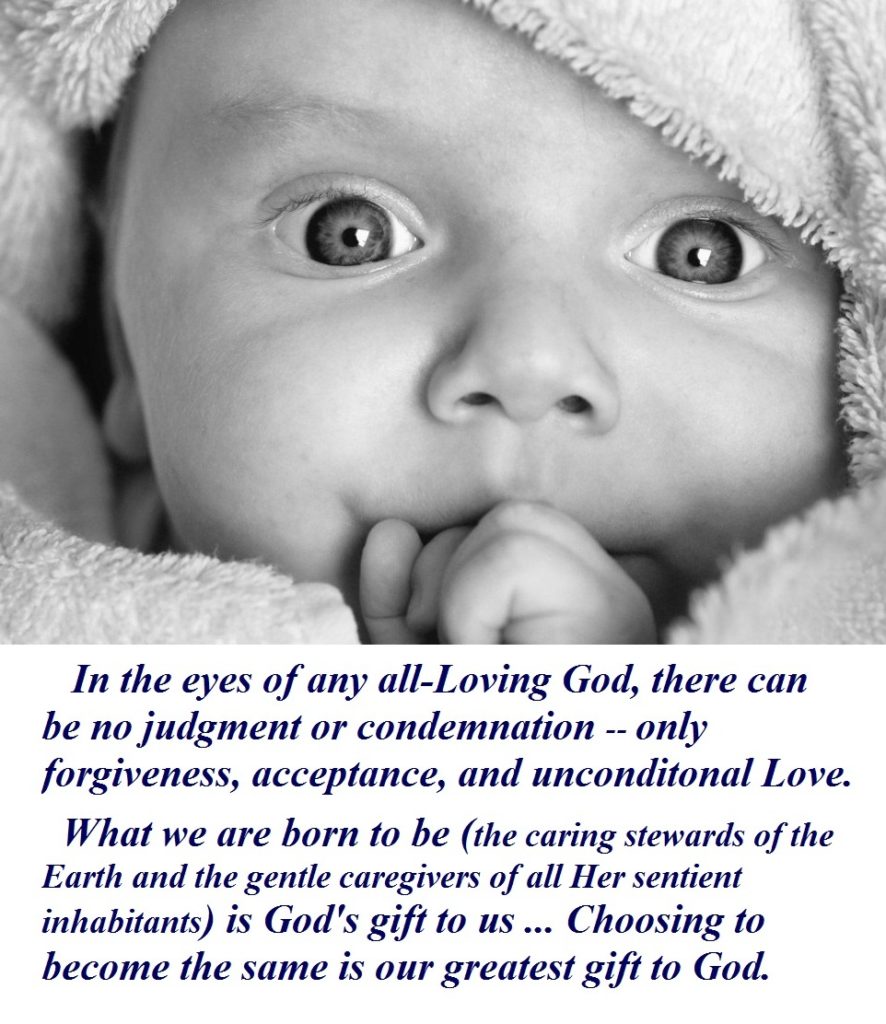Jesus & the Law – on justice in general … (11/10/18)
The ancient Law of the Israelites, as might well be expected, was also in part designed to establish a system of justice that governed the prosecution of all suspected civil & criminal infractions. It mandated the appointment of judges in every Israelite community (see Deuteronomy 16:18), it required that all those accused of any legal infraction appear before those magistrates (see Exodus 22:8), and it demanded that all the rulings of said legal officials be both accepted & honored (see Exodus 22:27 & Deuteronomy 17:10-11). Again without surprise (especially in light of how notoriously fond he was of unblemished mercy & unconditional forgiveness), Jesus offered a regularly critical commentary on this portion of the Law as well. Consider …
*Whereas the Law’s justice system was designed to judge its Jewish citizens fairly,1 Jesus called for them to not be judged at all – telling his listeners quite unequivocally, “Do not judge, so that you may not be judged; for with the judgment you make you will be judged and the measure you give will be the measure you receive” (Matthew 7:1-2 – also Luke 6:37),2 boldly claiming that “unless you change and become as humble as children3 you will never enter the Kingdom of Heaven” (via Matthew 18:3-4), reminding all his potential followers that “only those completely without sin should cast the first stone” (per John 8:7), and plainly noting that “all those who exalt themselves are destined to be humbled” (see Matthew 23:12).

*Whereas the Law often called for justice to be meted out via “fair retribution” (a la “an eye for an eye” – see Exodus 21:23-25), Jesus called for transgressors to be forgiven “seventy times seven times”4 (see Matthew 18:21-22 – also Matthew 18:32-35, Luke 15:11-32, & Luke 17:3-4).
*Whereas the Law mandated that all sinners either be called before a tribunal to be prosecuted or confess to a priest and make amends thereby (see Leviticus 5:2-7 & Numbers 5:6-7), Jesus told his followers that this was completely unnecessary – that they themselves had the full moral authority to absolve all wrongdoers of any misdeeds that might have been committed (see Jesus’ example on the cross, where he stated via Luke 23:34 “Father forgive them, for they know not what they do” – along with his admonition via John 20:23 “If you forgive the sins of any, they are forgiven them”).
*Whereas ancient Jewish legal traditions called for Israelites to rightfully accuse all wrongdoers and bring them thereby to trial (see Leviticus 5:1 et al), Jesus encouraged them to do no such thing – indeed, asking them to “be reconciled to your brother or sister” and “come to terms with all your accusers before you ever arrive with them in court” (via Matthew 5:23-26 & Luke 12:57-59).
*Whereas the Law strictly regulated the witness testimony that was required for any potential judicial conviction (see Exodus 23:1-7, Numbers 25:30, & Deuteronomy 24:16 et al), Jesus made it clear that such regulations were essentially unnecessary – that all would ultimately be “tried” by their own deeds (see Matthew 12:36-37 & Luke 19:22 – along with John 3:18 + John 14:12 & Matthew 25:31-465) and that the choices of each & every person thereby essentially “testify on their own behalf” (see John 8:13-14 & John 13:17).
………………………………………………………………………….
1 Jewish legal officials were regulated by the same Law they were called to adjudicate, in that they were explicitly required to treat all parties in any litigation with pure impartiality and render fully just decisions therein (see Leviticus 19:15 & Deuteronomy 1:17a) – doing so without favoring great men (see Leviticus 19:15), without fearing bad men (see Deuteronomy 1:17b), without having sympathy for poor men (see Exodus 23:3 & Leviticus 19:15), without discriminating against foreign men (see Deuteronomy 24:17), and without being too harsh on sinning men (see Exodus 23:6).
2 While it is true that Jesus did later make the statement “Do not judge by mere appearances, but rather judge with righteous judgment” in John 7:24, it is important for any earnest student of the Scriptures to understand the following: 01) the Hebrew word often translated as “judgment” in the Old Testament is misphat (Strong’s #4941) – a word which actually means “to provide justice” (often associated with legal rules & regulations), not “to condemn” or “to correct” … 02) the Greek word translated as “judgment” in both Matthew 7:1-2 & John 7:24 is krisin (Strong’s #2920) – a word which implies the passing of a judicial sentence upon another … 03) the latter “judgment” of John 7:24 is modified therein by the Greek word dikaios (Strong’s #1342) – a word which means “just” or “impartial” or “correct” more than the oft-translated “righteous” (a translation which carries with it arrogantly critical undertones that violate the very nature of Jesus’ entire ministry) … 04) the word translated as “judge” in both cases is the Greek krinete (Strong’s #2919) – a word which could mean either “distinguish” or “condemn.” As such, when viewed in the context of the sum of Jesus’ Gospel teachings, there is no contradiction or conflict between the two statements – Matthew 7:1-2 extols us to avoid critically condemning others in general or as people, while John 7:24 mandates that we use impartial discernment in the (hopefully very few) times we choose to examine their actions.
3 The Greek word often translated as “children” in this passage is paidia (Strong’s #3813) – a term which actually means “very young child,” “infant,” or “toddler.”
4In stark contrast to the vengeance called for in Genesis 4:24 (the only other time in the biblical manuscripts where the sum of “seventy times seven” is directly referenced), Jesus boldly states in Matthew 18 that everyone (the “seventy” nations of humanity mentioned in Genesis 10) was to be forgiven perfectly (the well-noted meaning of the number “seven” in Jewish culture) – that is, completely & without exception .
5This passage, otherwise known as the Parable of the Sheep and the Goats, points out quite powerfully that Jesus believes the time for courts and witnesses has passed; that the “sheep” (notoriously gentle & selfless animals) will via their kind actions be soaked in salvation on “the right hand” (traditionally the hand of giving) of the Father, while those qualifying as “goats” (just as notoriously known for their acts of ravenous greed) will via their selfish choices succumb to their own damnation on “the left hand” (traditionally the hand of taking) of the same.





 ;
;